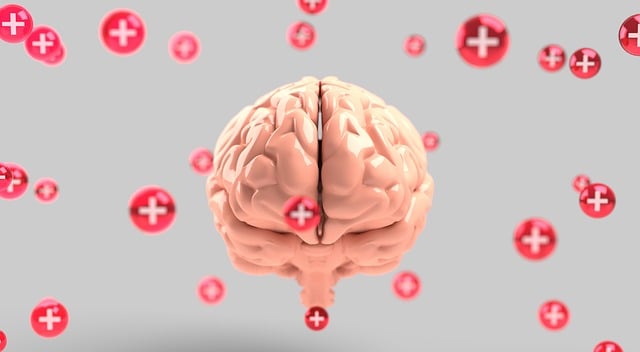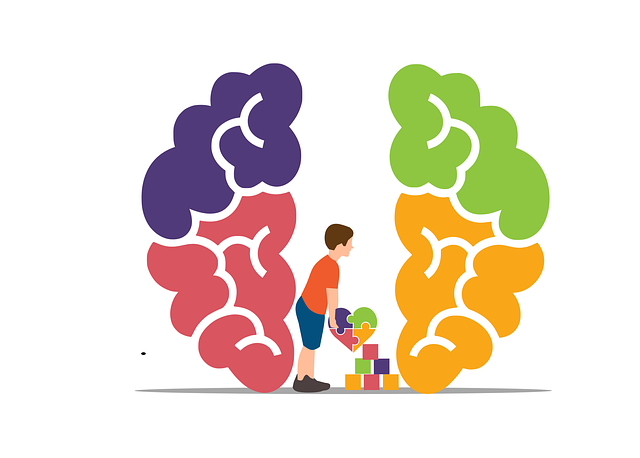Crisis Intervention Teams (CITs) provide immediate, multidisciplinary support during major life transitions like loss or trauma, combining mental health professionals, first responders, and community staff. Through advanced risk assessment, tailored interventions, and evidence-based practices, CIT training equips workers to manage crises effectively while fostering long-term recovery and reintegration. Strategic program implementation, evaluation, and tailoring to individual needs, including Mind Over Matter principles for stress management and emotional regulation techniques, enhance the overall effectiveness of intervention strategies.
“Crisis Intervention Team (CIT) training programs are a powerful tool in equipping communities to support individuals facing major life transitions. This article explores the critical role of CITs, emphasizing the need for comprehensive training to enhance their effectiveness. We delve into three key aspects: understanding the team’s purpose, the significance of skilled training, and implementing successful program strategies. By focusing on therapy for major life transitions, these programs ensure that crisis responders are equipped to provide vital support during challenging times.”
- Understanding Crisis Intervention Teams: A Vital Resource for Major Life Transitions
- The Importance of Training: Equipping Team Members with Effective Skills
- Implementing and Evaluating Programs: Strategies for Optimal Support During Life Crises
Understanding Crisis Intervention Teams: A Vital Resource for Major Life Transitions

Crisis Intervention Teams (CITs) are a vital resource for supporting individuals navigating major life transitions, such as loss, trauma, or severe mental health crises. These teams typically consist of mental health professionals, first responders, and community support staff who collaborate to provide immediate, targeted assistance during moments of heightened distress. By integrating diverse expertise, CITs offer a comprehensive approach to therapy for major life transitions, addressing not only the individual’s immediate needs but also their long-term recovery and reintegration into society.
Beyond offering immediate crisis support, CIT training programs equip mental health professionals with essential skills in risk assessment for mental health professionals and risk management planning. This includes recognizing warning signs, conducting thorough evaluations, and implementing evidence-based interventions tailored to each person’s unique situation. Enhancing mental health awareness and fostering effective communication among team members are key aspects of these programs, ultimately contributing to a more robust system of care that prevents escalation and promotes positive outcomes for those experiencing life-altering crises.
The Importance of Training: Equipping Team Members with Effective Skills

Effective crisis intervention team training programs are pivotal in equipping members with invaluable skills to handle critical situations. In today’s world, where individuals often face various challenges, from personal crises to community-wide traumas, well-prepared teams can make a significant difference. Training enables team members to develop coping skills and inner strength, ensuring they can provide therapy for major life transitions and offer immediate support.
These programs go beyond simple procedure memorization; they foster an understanding of mental health policy analysis and advocacy. By participating in realistic simulations and learning from experienced professionals, team members gain practical knowledge about crisis management. Moreover, such training helps build a supportive network within the team, encouraging open communication and collaborative problem-solving—essential aspects for effective intervention strategies.
Implementing and Evaluating Programs: Strategies for Optimal Support During Life Crises

Implementing and evaluating crisis intervention team training programs is a multifaceted process that requires strategic planning and consistent assessment. To provide optimal support during life crises, these programs must be designed to meet the unique needs of individuals experiencing major life transitions. Incorporating evidence-based practices, such as Mind Over Matter principles, can empower participants to manage stress, cultivate resilience, and develop healthy coping mechanisms.
Effective communication strategies are another cornerstone of crisis intervention. Training should equip team members with skills to actively listen, validate emotions, and convey support in a non-judgmental manner. By fostering open dialogue and emotional regulation techniques, crisis intervention teams can create a safe space for individuals to process their experiences and begin their journey towards healing and recovery.
Crisis intervention team training programs are indispensable in equipping individuals with the skills needed to provide effective support during major life transitions. By understanding the importance of these teams and implementing well-structured training, we can ensure that those facing crises receive the best possible therapy. Evaluating these programs is crucial to continually improving the quality of care offered, ultimately fostering healthier communities.














